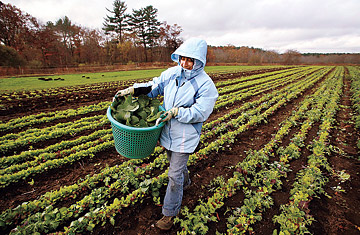
The Slow Food movement is grappling with critics' contention that such methods cannot meet the needs of growing numbers of hungry people in poor nations.
Over Labor day weekend, thousands of foodies flooded a special farmers' market set up by Slow Food Nation in San Francisco's grand Civic Center. But the gourmands who showed up eager to fill their baskets with dry-farmed Early Girl tomatoes and muslin-wrapped Cheddar cheeses might have been surprised to find that the first event of the conference wasn't a seminar on artisan bread but an earnest panel on the global crisis of rising food prices. Slow Food--the anti-fast-food, anti-industrial-agriculture movement launched in 1986 by a left-wing Italian journalist--too often has tilted more toward high-class gastronomy than hard-to-solve public-health issues, a criticism...

